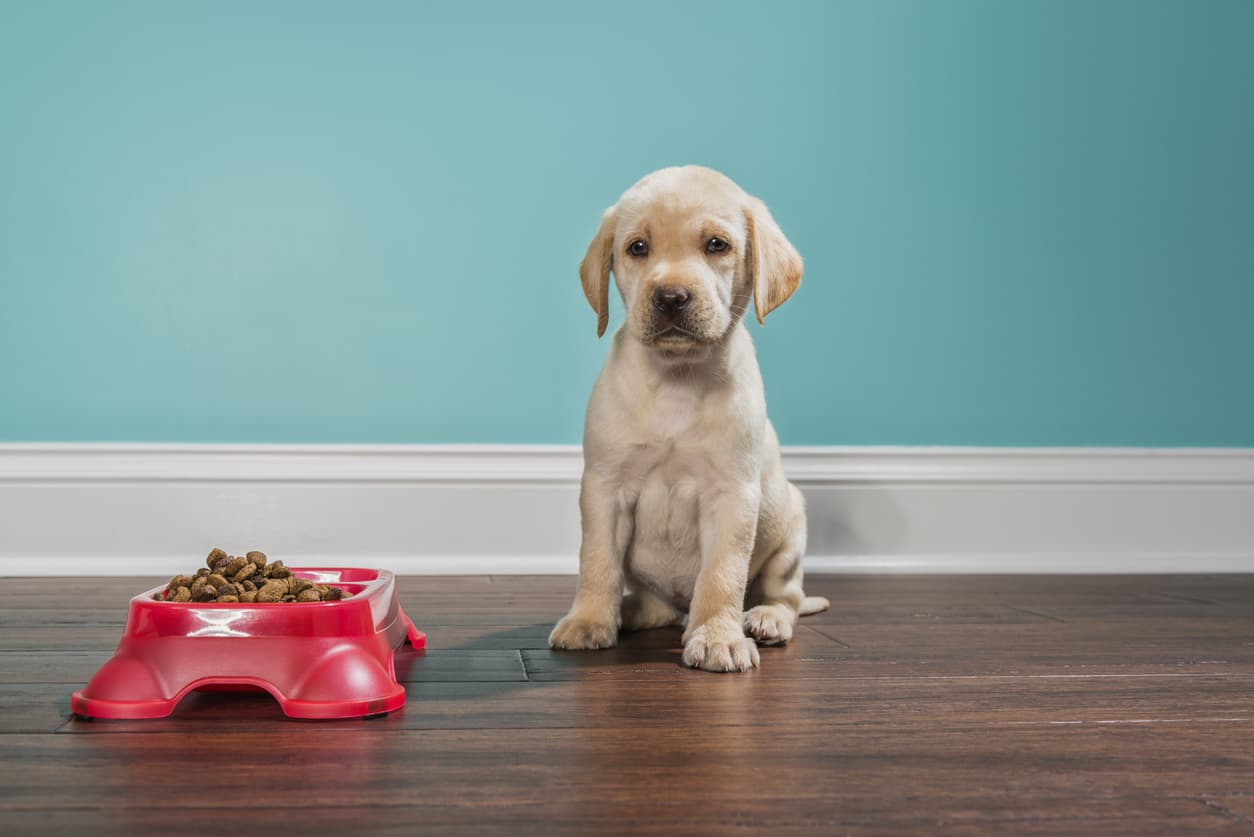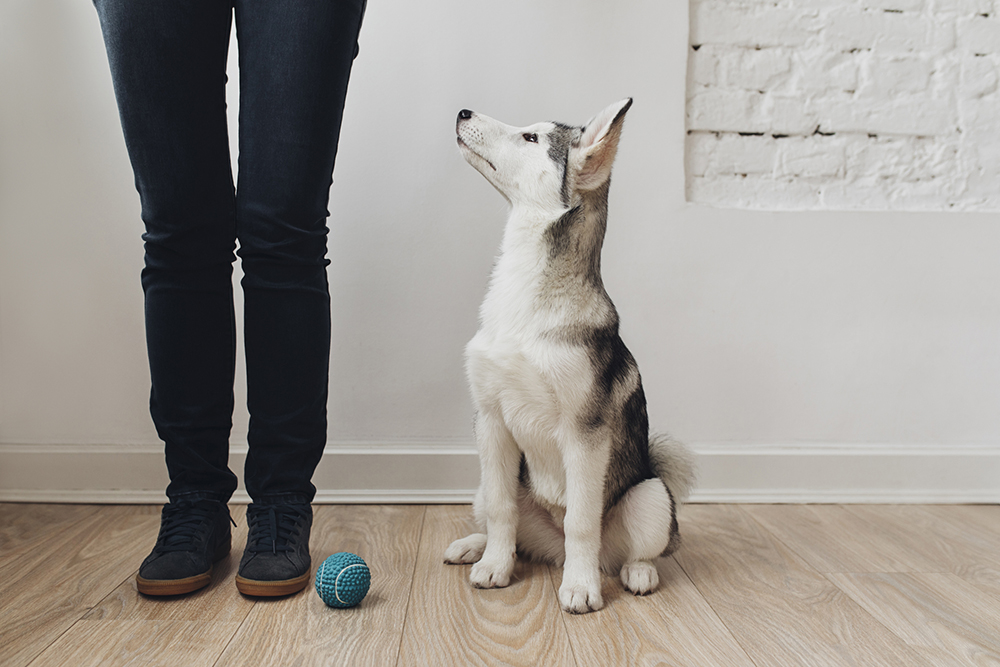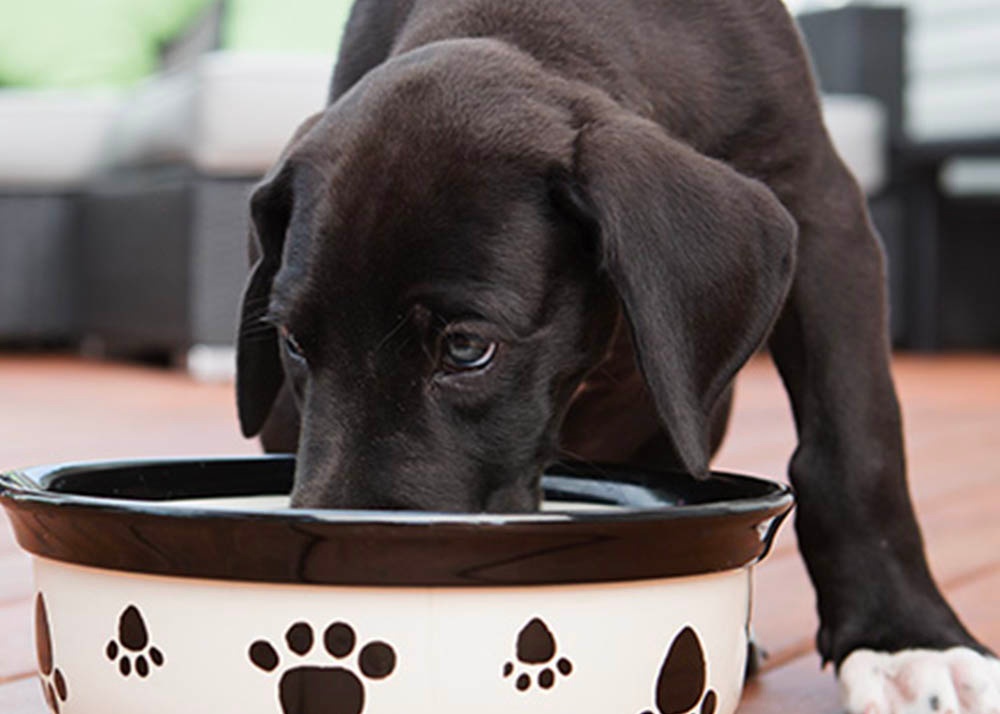Learn : Puppy Care
Why is My Puppy Not Eating?
Puppy Not Eating Causes and Treatment
The only thing scarier than your dog not eating may be your puppy not eating. This guide covers several common causes and treatments for why your puppy may not be eating due to behavioral or environmental reasons. We also cover some possible health reasons and signs of illness that you should review with your vet.
Common Reasons Why Your Puppy Won't Eat
While puppies generally love their food, there are a few causes for them to not treat. We have broken it down for yowhen you first get a new pup, it's natural for her to go through an adjustment period. Just be on the lookout for symptoms that could indicate an underlying medical condition, especially if the lack of appetite goes on for a few days.
Introducing New Food to Your Puppy
If your puppy is young when you get her, ask the shelter, rescue, or breeder if she was just weaned (usually weaning happens in a puppy's first 8 weeks). Recently weaned puppies often do better with canned food, fresh food, or moistened kibble rather than plain, dry kibble.
If you're planning to change the type of food, it doesn't need to happen on day one—let your pup get settled into her new home before tweaking her diet. And remember that puppies go through a teething phase, during which kibble or dry food may be a little uncomfortable. You can try wetting it, or just wait a few days to see if your pup adjusts.
Puppy Adjusting to a New Family and Home
Puppies usually need a day or two to get used to their new surroundings. It's more critical that small breeds and very young puppies eat regularly. If your puppy is between 8 and 12 weeks, hasn't eaten in a day, and is acting quiet, talk to your vet. If your puppy is bouncing around like a maniac, he'll probably come around to eating once he adjusts to his new environment and all the stimuli that come with it.
And be sure to check with whoever had the puppy before you on feeding habits: ask what type of bowl or dish was he fed in, when he was fed, and whether he was a social or independent eater. If you can match these factors, your new furry best friend will feel more comfortable at mealtime.
Giving Your Puppy Too Many Treats
Let's face it: puppies love to eat, and many new puppy owners love giving treats to reward good behavior. That's why it's important to understand a puppy's feeding requirements to get daily calorie needs and aim to make no more than 10 percent of those as calories treats. That way, you won't dilute the critical nutrients your puppy needs to grow and thrive. As an alternative, try offering small portions of your puppy's regular diet—borrowed from his total calorie intake—as treats.
Potential Puppy Health Issues
With a puppy, it's important to pay close attention to everything from her behavior to her urination and defecation. If your new puppy won't eat, it could be due to certain health issues including:
- Contagious infections: The most common is kennel cough, which causes coughing and sneezing; and parvovirus, which comes with vomiting and diarrhea, and can be fatal if left untreated.
- Intestinal parasites: Look for gastrointestinal symptoms, like a distended belly, a lack of appetite, diarrhea, and vomiting.
- Urinary tract infection (UTI): A UTI can make your puppy feel pretty miserable and uninterested in eating. Watch for reduced urine output, straining, and/or blood in the urine.
- Vomiting or diarrhea: These symptoms can stem from a new diet, stress, or the puppy getting into things they shouldn't.
- Congenital issues: Congenital defects can affect any organ or system in the body of the dog (a deformed palate in the roof of the mouth, liver abnormalities, and more) and often appear as early as birth. Because the signs can be pretty nonspecific (lack of appetite, lethargic, etc.), they're usually only found by vets.
If you suspect any of the above or note persistent symptoms in your puppy, consult your vet.
What to Do When Your Puppy Won't Eat
Generally speaking, behavioral causes of reduced food intake in puppies are very temporary, lasting only a day or two. If you're wondering how to get a puppy to eat when he's new to your home, try the following tips:
- Stick to the same food he was eating in her previous home for at least the first week or so.
- Feed your puppy in a safe place, away from distractions and other dogs—he'll probably feel more secure. Sometimes, though, seeing another dog eat can also stimulate a puppy into chowing down.
- Pay attention to the number of treats you're offering, and make sure your puppy isn't getting more than 10 percent of her daily calories as treats.
- If your pup is struggling with dry food, switch to canned or fresh food with more moisture, especially if he's very young or teething. (You can also try moistening dry food a bit.)
- Check out the strategies above for adult dogs, many of which should also work in puppies.
If you're seeing symptoms last longer than a few days, take your pup to the vet. The visit may involve screening for parasites, blood work, and other quick tests. Most puppies bounce back quickly from all but the most severe illnesses with appropriate care and treatment. Keep a list of any abnormal behaviors or signs you're noticing so you can pass that information along. Your veterinary team will help you to identify and treat any issues, which may involve diet changes, fluids, probiotics, and/or medications. They'll also help you check your pup's body condition score to make sure his calorie intake is properly lining up to his development.




 Dog Training Basics
Dog Training Basics
 Myths About Dog Starvation
Myths About Dog Starvation
 Puppy Feeding Guide
Puppy Feeding Guide